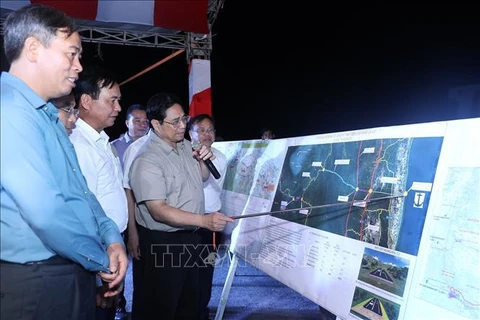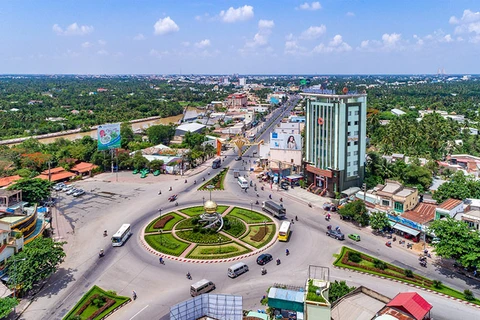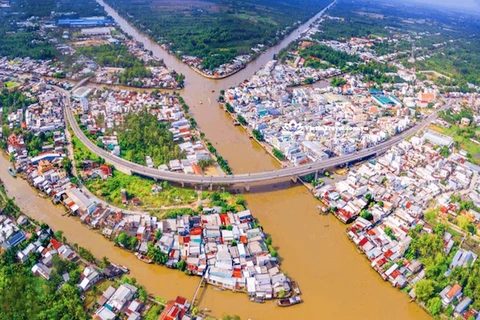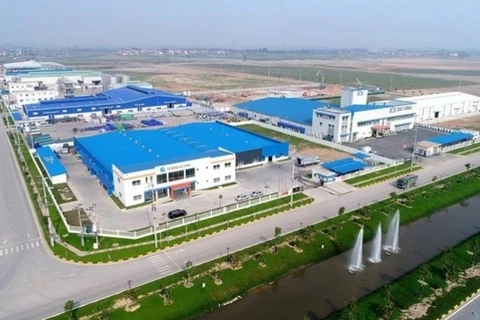 Part of the Vietnam - Singapore Industrial Park in Tan Uyen township of the southeastern province of Binh Duong. (Illustrative photo: VNA)
Part of the Vietnam - Singapore Industrial Park in Tan Uyen township of the southeastern province of Binh Duong. (Illustrative photo: VNA) The real estate service provider said that in recent years, many industrial property developers have selected the Mekong Delta as a new and potential investment destination to implement large-scale projects.
Those projects include 293.7-ha Vinh Thanh Industrial Park, located in Can Tho city, which is invested with more than 3.71 trillion VND (153 million USD) by Vietnam - Singapore Industrial Park (VSIP) joint venture. To support this project, the municipal administration has built two roads leading to this park, namely the one worth 172 billion VND connecting the park with National Highway 80 and another worth over 384 billion VND liking it with the access road of Vam Cong Bridge.
Showing its strong confidence in the region’s logistics potential, in October 2022, SLP Vietnam launched work on a warehouse project named SLP Park Binh Minh covering 29,000 sq.m. in Vinh Long province. It believed that this modern warehouse project will be useful for easing pressure on the overloaded logistics system in Ho Chi Minh City.
Meanwhile, preparations are being made to start construction of the first phase of the Gilimex Vinh Long Industrial Park. The 400ha project, invested with some 2.6 trillion VND, in Binh Tan district of Vinh Long province is carried out in two phases, with the first one covering 255ha and the second 145ha.
John Campbell, Associate Director and head of industrial services at Savills Vietnam, held that these projects show the companies’ long-term commitments in their visions of developing business and improving the logistics system and real estate in the Mekong Delta, and Vietnam as a whole.
In the coming time, many investors will continue choosing this region as their destination, particularly in the food, beverage, and farm produce processing industries, he said.
To attract investors, the expert recommended localities fine-tune mechanisms, reform administrative procedures, provide a stable legal corridor, create a favourable investment environment, and tackle bottlenecks facing investors.
In an action plan for implementing the Politburo’s Resolution 13-NQ/TW, dated April 2, 2022, on orientations for socio-economic development and defence - security safeguarding in the Mekong Delta until 2030, with a vision to 2045, the Government targets the annual growth rate will average 6.5 - 7% during 2021 - 2030 and the size of the region’s economy by 2030 will be 2 - 2.5-fold bigger than in 2021. To that end, completing the expressway system connecting the Mekong Delta with the southeastern region is among the tasks.
According to the Prime Minister-approved plan on the road network for 2021 - 2030 with a vision to 2050, the Mekong Delta will have six expressways that have four - six lanes and total length of 1,166km.
Besides, a strength of this region is waterway transport, Campbell noted, adding that if the waterway transport infrastructure and port complexes are developed and connected with the national port system, it will help strengthen the Delta’s logistics, production and sea transport advantages, thus attracting even more investors./.
VNA
























